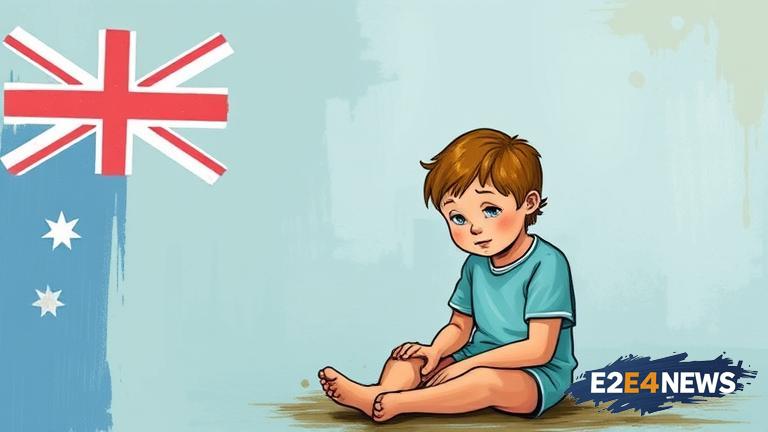The National Disability Insurance Scheme (NDIS) has been a vital source of support for thousands of Australian families with children living with disabilities. However, the recent announcement of funding cuts for child therapy has sent shockwaves throughout the community. Zarli Skopp, a young girl with cerebral palsy, has been at the center of the controversy, with her family speaking out about the devastating impact the cuts will have on her treatment. The Skopp family, like many others, relies heavily on the NDIS to access essential therapies, including occupational therapy, speech therapy, and physiotherapy. Without these therapies, Zarli’s condition is likely to deteriorate, and her family fears for her future. The funding cuts, which are expected to affect over 10,000 children, have been widely condemned by advocacy groups, who argue that they will have a disproportionate impact on vulnerable families. The Australian government has defended the decision, citing the need to ensure the long-term sustainability of the NDIS. However, critics argue that the cuts are a short-sighted move that will ultimately cost the government more in the long run. As the debate rages on, families and advocates are calling for the government to reconsider its decision and prioritize the needs of children with disabilities. The NDIS was introduced in 2013 to provide support to people with disabilities, with the goal of enabling them to live independently and participate fully in their communities. The scheme has been widely praised for its innovative approach to disability support, but the funding cuts have raised concerns about its future viability. The Australian government has faced criticism in the past for its handling of the NDIS, with many arguing that it has failed to adequately fund the scheme. The latest funding cuts have only added to these concerns, with many warning that they will have a devastating impact on the lives of people with disabilities. As the government faces growing pressure to reverse its decision, it remains to be seen whether it will listen to the concerns of families and advocates. The fate of children like Zarli Skopp hangs in the balance, and the outcome of this debate will have far-reaching consequences for the disability community. The NDIS has been hailed as a world-leading example of disability support, but the funding cuts have raised questions about its future. The Australian government must prioritize the needs of people with disabilities and ensure that the NDIS is adequately funded to meet their needs. The cuts have also sparked concerns about the impact on rural and regional areas, where access to therapies is already limited. Families in these areas will be disproportionately affected by the cuts, and many are warning of a crisis in disability support. The government must take immediate action to address these concerns and ensure that all Australians have access to the support they need. The debate over the NDIS funding cuts has highlighted the need for a more sustainable and equitable approach to disability support. The Australian government must work with families, advocates, and service providers to develop a solution that prioritizes the needs of people with disabilities. The future of the NDIS hangs in the balance, and it is imperative that the government gets it right. The consequences of failure will be devastating, and it is the responsibility of the government to ensure that the NDIS is adequately funded to meet the needs of all Australians. The funding cuts have also raised concerns about the impact on the mental health of children with disabilities. Many children rely on therapies to manage their conditions, and the cuts will only add to the stress and anxiety faced by families. The government must take immediate action to address these concerns and ensure that all children have access to the support they need. The NDIS has been a vital source of support for many families, and the funding cuts have raised concerns about its future viability. The Australian government must prioritize the needs of people with disabilities and ensure that the NDIS is adequately funded to meet their needs.
